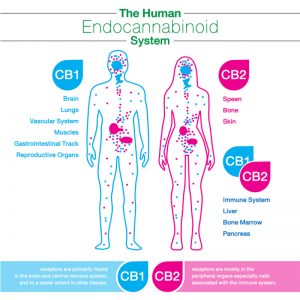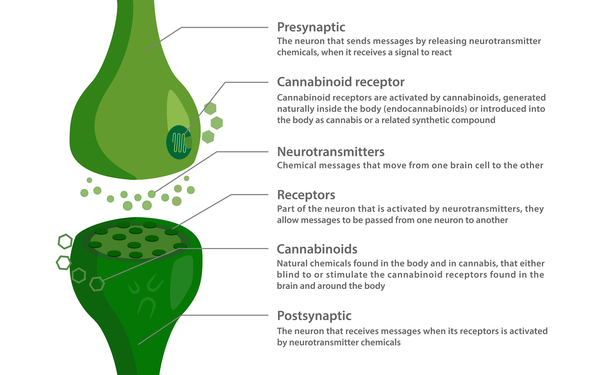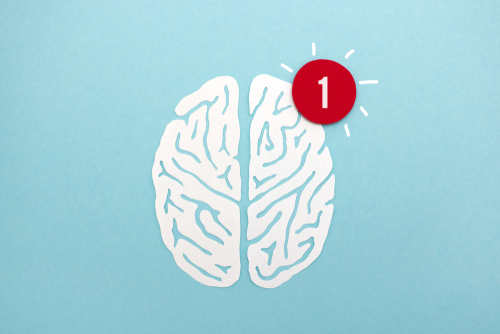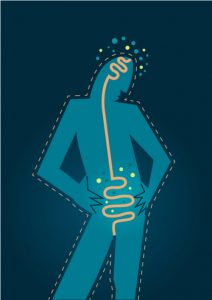CBD: Your Brain’s Favorite Molecule
What if someone told you there was a plant out there that interacted pretty much perfectly…with your brain? A plant whose active compounds promote health by mimicking the action of internal neurochemicals? A plant which, because of such crazy similarities, was effective at addressing the root cause of many, many health issues?
Truth can be stranger than fiction in the natural world, and as it turns out there is a plant that possesses all these qualities, and more: hemp.
An annually flowering member of the same plant family hops is in, hemp contains unique compounds called cannabinoids — they’re the ‘active’ compounds mentioned earlier. Hemp doesn’t contain just one or two of these cannabinoids, though. In total, it contains close to a hundred of them!
The most important cannabinoid to know is called CBD, or cannabidiol. Mature, high-quality hemp is up to 20% CBD by dry weight, a metric unreached in any other plant on the planet. In addition to cannabinoids like CBD, hemp also contains scent molecules called terpenes that further amplify its health effects.
How CBD Works
Taken in concentrated oil form, CBD exerts homeostatic force over the central processing unit that controls it all: the brain. In other words, it helps a person heal themselves by keeping that person’s mind in balance. If this sounds amazing — it is! Hemp-derived CBD oil has swept the country, rising to popularity mostly through good ol’ fashioned word of mouth.
That’s because CBD works. Usually, it works pretty well: 80% of users report CBD products to be at least “very effective”. Users testify that CBD helps them sleep better, stay peaceful, and live pain-free.
But why is CBD so good for one’s health? To really answer that, it’s critical to first understand that there are two types of cannabinoids. There are plant cannabinoids like CBD, yes, but just as important is the fact that our bodies make their own cannabinoids.
Yep, that’s right. As you read this, your body is busy producing and consuming cannabinoids of its own. Called endocannabinoids (or eCB’s for short) these little miracle molecules are part of an innate and intricate feedback loop built into the nervous system and brain. That feedback loop is, appropriately enough, called the endocannabinoid system (ECS).
Why CBD Works — And Why Your Brain Loves It

You can thank endocannabinoids and their activation of this fascinating system for many different aspects of emotion, memory, hunger, and consciousness. Scientists have found that endocannabinoids run many physiological functions — they just do it behind the scenes, in a way that resisted discovery until around 25 years ago.
While a healthy ECS is self-sustaining, our stressful modern lives mean things aren’t always so simple. Just like anything else in the body, the endocannabinoid system can get ‘run down’.
When this happens, dis-ease in the body is the result. A brain that’s low in endocannabinoids is an inflexible, unhealthy, inflamed brain. Without endocannabinoids holding everything together and allowing energy to flow, inflammation can begin to run wild.
This kind of eCB deficiency is made worse by dietary factors like high omega-6 fat intake, something that’s unfortunately common on your average ‘healthy’ diet. Overall, modern life has set the stage for an endocannabinoid epidemic.
The Endocannabinoid System

Now for some good news, though: onto this stage has stepped cannabidiol. In many ways, the plant compound is tailor made for the human brain. That’s because CBD works through its activation of the cannabinoid receptors in the endocannabinoid system, which in turn helps the brain heal and rewire itself.
When we say rewire, we mean that literally. The ECS has been implicated as a driving force behind this phenomenon, which scientists call neuroplasticity. Activate the ECS with plant compounds like CBD and two things simultaneously happen: inflammation goes down, and connectivity goes up. The stage becomes set for the development of new neural pathways and renewed memories. In simpler terms, CBD may help a person literally change their mind!
Best of all, the ECS works with the brain, not against it, to produce these neuroplastic changes. That ensures CBD is free of any harsh side effects and totally non-addictive. Overall it’s an amazing process, one that’s gentle and truly holistic.
Other studies show CBD alleviates many of the brain’s rate-limiting factors — factors that would otherwise contribute to disease and aging, like inflammation, overexcitation, and oxidation.
It does this mainly by combating excess free radical production. How? The plant compound actually sends unique retrograde signals to other neurotransmitters in order to facilitate a cleaner burning metabolism. A more efficient metabolism, in turn, generates less free radicals and is easier on the entire system.
While it’s not all that important to understand the biochemical specifics, we hope you’ll come away from this article fully understanding how they might apply to you. These shifts can initiate a wide variety of tangible health benefits — take a look at just a few of them below:
CBD and Anxiety:

CBD and calmness go hand in hand. A 2017 study found its calm-promoting qualities could be used to alleviate many kinds of anxiousness, even the acute anxiety seen during public speaking. Study participants even noted subjective improvements in the way they saw themselves during their speaking.
Based on the findings so far, it seems anxiety responds well to an activated ECS. Not much is needed to rebalance it, after all. Once healthy again, the ECS may help restore the brain’s natural serotonin and dopamine levels; the right amounts of both these neurotransmitters promote a state of calm in the mind and body.
CBD and Weight Loss:
While CBD won’t directly cause weight loss, it may help set the stage for it…
CBD interacts with endocannabinoid receptors in the hypothalamus — the same part of the brain which produces hunger hormones like leptin and ghrelin. Through modulation of these hormones, CBD may help keep your hunger under control, even during dieting.
Endocannabinoids may also help one’s body adapt to cold weather. They do this by promoting the formation of a special type of fat, brown adipose tissue, that’s more metabolically active than ‘normal’ fat. As strange as it might sound, this practical effect is good for anyone who wants to lose weight.
CBD and Blood Pressure:
CBD use = more endocannabinoids = (potentially) lower blood pressure. Though this benefit might seem a little surprising, it’s been understood by leading researchers for more than 20 years!
Activation of the brain’s Type-1 endocannabinoid receptors means good things for vasodilation, heart rate, and overall calm. All these factors contribute to keeping high blood pressure in check.
And what activates these receptors? An endocannabinoid called anandamide that just so happens to be produced in greater quantities by our body when one takes CBD.
CBD, Gut Health and the Second Brain:

Many people note that their digestion improves after they’ve been taking CBD for a while. These same people usually feel calmer, too. The fact these qualities run hand in hand is actually no surprise; each of us has a gut-brain axis that ties together gut flora and mood. Many even refer to our gut as our “second brain” because of how important this connection is.
Though often overlooked by western medicine, inflammation of the gut-brain axis is unfortunately common. The potential effects of this inflammation include anxiety, depression, IBS, neurodegeneration, and more.
Thankfully, though, the digestive tract’s endocannabinoid receptors are very adaptable. When strengthened by cannabinoids like CBD, they help ‘seal up’ the gut lining, promote healthy gut flora, and quiet down the inflammatory response.
CBD and Inflammation:
Speaking of inflammatory responses…the anti-inflammatory properties of pretty much every cannabinoid don’t just benefit the gut. They also impact the central nervous system, muscles, joints, vital organs, and more. The ECS’s role in reducing inflammation is probably the system’s single biggest, most important function; from it, many other health benefits flow.
Keep in mind, though, not all inflammation is bad. Small amounts of it signal to the immune system that more help is needed. Acute inflammation may also speed up recovery from injuries and tough workouts. Problems only begin when this (temporarily helpful!) inflammation becomes chronic.
While a healthy endocannabinoid system reduces inflammation, it doesn’t eradicate it entirely. The ECS actually communicates directly with immune cells to produce just the right response. If your body’s struggling to maintain this process, CBD may help! That also makes it a promising research candidate for those with autoimmune disorders.
CBD and chronic pain:
Chronic pain can be debilitating, depressing, and costly. It’s also sadly prevalent: at least one in four Americans and one in three Europeans suffer from lasting pain. But CBD might just be nature’s solution.
After all, studies clearly show CBD’s activation of the ECS can help reduce inflammation. In many cases, chronic inflammation is what triggers chronic pain in the first place. Could that mean CBD’s an ideal preventative measure? Only time will tell.
What we do know so far is this: CBD’s activation of the ECS may reduce aches and pains in two ways, calming inflammation and quieting down pain signals and their perception within the brain.
A survey of 280,000 social media posts on the topic of pain management found that 91% of them were positive — that’s pretty amazing, from a pharmacology standpoint! Scientists agree, and are looking into how cannabinoids might be used specifically for “difficult to treat” pain.
One more amazing, macro-level benefit: the extra endocannabinoids produced thanks to CBD may be used to stabilize and synchronize overall brain function. A healthy ECS may ‘smooth out’ otherwise mistimed cellular signals, helping to align them much like a single conductor aligns the different sounds of many musicians.
This synchronization is clearly seen within disease states like epilepsy, where those affected typically get amazing results from CBD. But the concepts of mental fluidity and synchrony that underlie CBD’s anti-epileptic nature actually apply to us all.
As you can see, the health benefits of CBD are just as diverse as endocannabinoid system function itself. Balance out the ECS, and good things happen. And in CBD, nature has given us the perfect tool to do just that.
